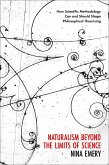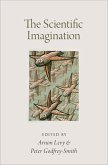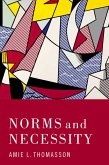What is knowledge? What, if anything, can we know? In Knowing and Seeing, Michael Ayers recovers the insight in the traditional distinction between knowledge and belief, according to which 'knowledge' stems from direct and perspicuous cognitive contact with ('seeing') its object, whereas 'belief' relies on 'extraneous' justification. He conducts a careful phenomenological analysis of what it is to perceive one's environment as one's environment, the result of which is not only direct realism, but recognition that in being perceptually aware of anything we are at the same time perceptually aware of how we are aware of it. Perceptual knowing comes with knowing how you know. Some other forms of knowledge are similarly direct and perspicuous, but not all; a distinction is accordingly drawn between primary and secondary knowledge, and Ayers argues that no secondary knowledge is possible without some primary knowledge. Perceptual knowledge supplies the paradigm to which other cases of knowledge are diversely analogous - hence the notorious difficulty of defining knowledge. These conclusions, supported by a detailed examination of the relations between different grammatical constructions in which 'know', 'believe' and 'see' occur, fuel extended critiques of two lines of thought influential in contemporary epistemology: John McDowell's conceptualist and intellectualist account of perceptual knowledge, and Fred Dretske's 'externalist' employment of sceptical argument. Ayers unpicks the arguments for these other views, explains the failure of recent attempts at a comprehensive definition of knowledge, explores the tight relation between knowledge and certainty, and gives an account of how 'defeasibility' should and should not be understood in epistemology.
Dieser Download kann aus rechtlichen Gründen nur mit Rechnungsadresse in A, B, BG, CY, CZ, D, DK, EW, E, FIN, F, GR, HR, H, IRL, I, LT, L, LR, M, NL, PL, P, R, S, SLO, SK ausgeliefert werden.









